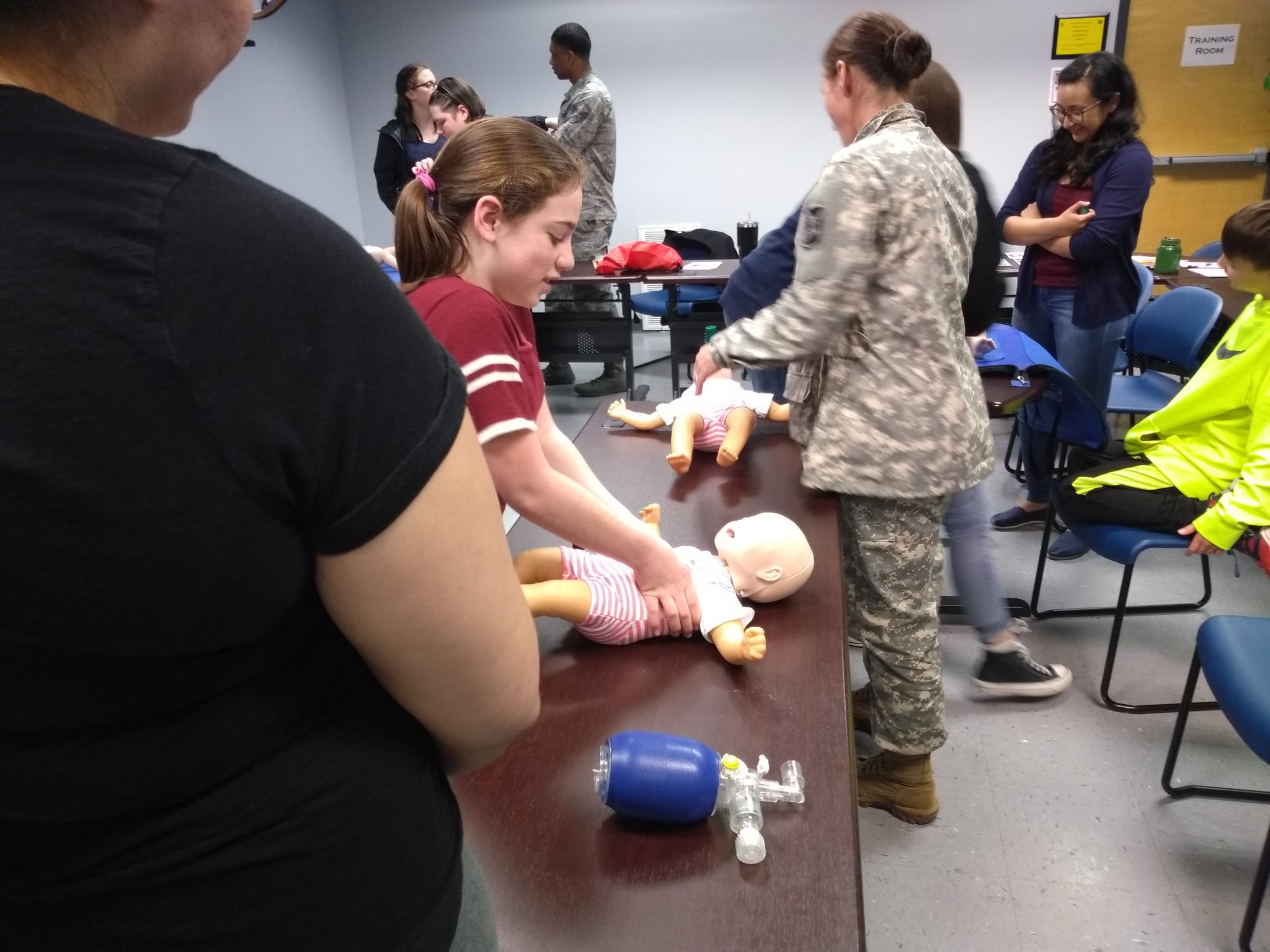
Fort Gordon CPR: Soldiers In U.S. Army Have Worse Heart Health Than Civilians, Surprising Study Shows
In the first study of its kind to compare cardiovascular health between Army personnel and civilians using standards set by the AHA, researchers discovered that civilians were in better standing across all age groups. The authors used data from a sample of 263,430 active duty soldiers ages 17-64, as well as a similar group of Americans who took part in the National Health and Nutrition Examination Survey (NHANES) in 2011-2012.Fort Gordon CPR: Soldiers In U.S. Army Have Worse Heart Health Than Civilians, Surprising Study Shows
“We had expected that the percentage of ideal weight in the Army group would have been much higher because of the fitness standards to get into the Army and the physical aspects of the job,” says study author Loryana L. Vie, the senior project director of a long-term collaboration between the U.S. Army and the University of Pennsylvania, in a statement. “It is notable that we didn’t see the advantage we expected in the Army group, and it’s clear that both groups have a lot of room for improvement.”
CLICK HERE TO SUBSCRIBE TO OUR WEEKLY NEWSLETTER & GET THE LATEST STUDIES FROM STUDYFINDS.ORG IN YOUR INBOX!
Researchers assessed each participant by grading them in four areas: current tobacco smoking, weight, blood pressure, and diabetes. These represent four of the seven health factors or behaviors that the AHA use to identify ideal cardiovascular health, however the remaining three — diet score, physical activity, and total blood cholesterol — were not sufficient enough to evaluate for Army personnel in 2012.
When divided into four age groups, researchers found civilians had more individuals with ideal cardiovascular health for each sample, but even still, those numbers were very low. The youngest group, those ages 17 to 29, showed just 16% of civilians were ideal versus a shocking 10% of Army soldiers.
“Ideal weight and blood pressure metrics were strikingly low in both active duty personnel and civilians,” says Vie. “We found that only one-third of the Army and civilian groups had an ideal weight.”
About 20% of both groups were current tobacco smokers, though overall a greater proportion of those in the Army met ideal criteria when it came to smoking and diabetes. But the authors found only 30% of soldiers had ideal blood pressure, compared to 55% of civilians — a strange finding seeing as the U.S. military excludes recruits with elevated blood pressure.
“It was surprising to find that Army personnel were less likely to have ideal cardiovascular health – especially due to higher blood pressure – compared to civilians of similar ages. Because recruits are screened to exclude high blood pressure and maintaining physical fitness is a major focus for the Army, we expected lower, not higher, blood pressure in the Army,” notes senior author Dr. Darwin R. Labarthe, a professor of preventive medicine at Northwestern University’s Feinberg School of Medicine in Chicago.
The authors say that cardiovascular disease affects those in the Army more than any other disease and is on the rise. A 2014 study showed that nearly 1 in 10 Army personnel (9.4%) had cardiovascular diseases, a significant increase from the 6.8% recorded just seven years earlier.
The study is published in the Journal of the American Heart Association.Fort Gordon CPR: Soldiers In U.S. Army Have Worse Heart Health Than Civilians, Surprising Study Shows

